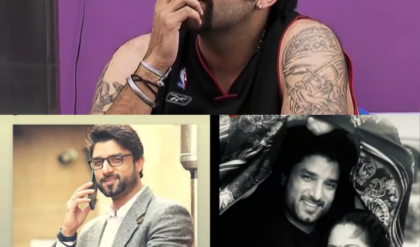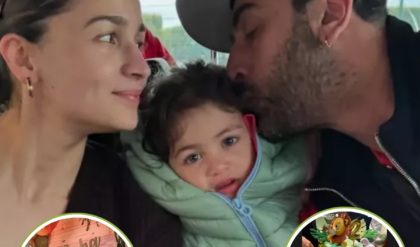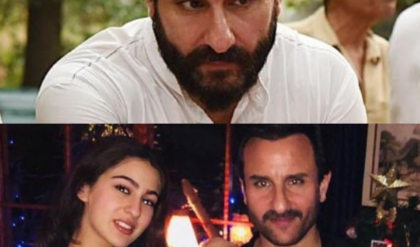In a startling turn of events, comedian Munawar Faruqui has found himself in the eye of a storm following threats purportedly from the Bishnoi gang. This situation has escalated significantly, leading to increased security measures for Faruqui and prompting him to issue a public apology. Known for his sharp wit and humor, Faruqui’s recent experiences highlight the complex intersection of comedy, security, and the implications of organized crime in the entertainment industry.
Munawar Faruqui rose to prominence in the Indian comedy scene through his unique brand of stand-up comedy and his appearances on various comedy shows. He gained further attention after being embroiled in controversy over a performance that drew ire from certain political and religious groups. Despite the challenges he faced, including a brief stint in jail, Faruqui remained resilient and continued to build his career. His journey has been marked by a determination to speak his truth and address social issues through his art, which has earned him a dedicated fan base.
However, the recent threats from the Bishnoi gang have cast a shadow over his career and personal safety. The Bishnoi gang, notorious for its criminal activities and connections to organized crime, has gained notoriety in recent years, often making headlines for violent incidents and intimidation tactics. The gang, which has ties to various underworld figures, poses a significant threat to individuals who speak out against them or disrespect their perceived values. This context adds a layer of seriousness to Faruqui’s situation, illustrating the potential dangers faced by artists who challenge societal norms through their work.
Following the threats, it became imperative for authorities to ensure Faruqui’s safety. Reports indicate that security measures surrounding him were significantly heightened, with police providing protection during his performances and public appearances. This increased security is not only a response to the immediate threats but also reflects a broader concern for the safety of artists in an increasingly volatile environment. The entertainment industry in India has seen a worrying trend of intimidation and violence against performers, especially those whose work is perceived as controversial or provocative.
Faced with the mounting pressure and fear for his safety, Munawar Faruqui issued a heartfelt apology that resonated with many. In his statement, he expressed remorse for any offense caused by his jokes and emphasized his intention to entertain rather than provoke. The apology serves as a poignant reminder of the precarious position artists find themselves in when navigating sensitive societal issues. While comedy has long been a platform for social commentary, the potential repercussions of pushing boundaries can lead to severe consequences, as illustrated by Faruqui’s experiences.
The incident has sparked a broader conversation about the role of comedy in society and the limits of artistic expression. Many comedians have historically used humor to address controversial topics, challenge societal norms, and provoke thought. However, the fear of backlash from powerful entities, such as organized crime groups, has created an environment of self-censorship among artists. Faruqui’s apology reflects this reality, as he grapples with the consequences of his craft in a landscape that increasingly punishes dissenting voices.
Social media has played a significant role in amplifying the dialogue surrounding Faruqui’s situation. Fans and fellow comedians have voiced their support for him, condemning the threats and calling for greater protection for artists. Hashtags advocating for Faruqui’s safety have gained traction, highlighting the solidarity within the comedy community and the public’s desire for freedom of expression. This support is crucial, as it not only bolsters Faruqui’s morale but also raises awareness of the challenges faced by comedians working in a hostile environment.
In light of these events, Munawar Faruqui’s situation serves as a wake-up call for the entertainment industry and society at large. The intersection of comedy and organized crime underscores the urgent need for dialogue about the implications of censorship and the protection of artistic freedom. Artists must be able to navigate their craft without the looming threat of violence or retribution, and the community must rally around those who face such challenges.
As Faruqui continues to navigate this tumultuous period, his experiences will likely shape his future work and approach to comedy. Artists often draw inspiration from personal experiences, and the challenges he faces may lead to new themes and narratives in his performances. While the current situation is undoubtedly distressing, it may also serve as a catalyst for deeper discussions about societal issues, safety, and the power of humor as a tool for change.
Watch video:
News
उभरे हुए बगीचे के बिस्तरों के लिए अंतिम गाइड: अपने बागवानी अनुभव को बदलें
एक ऊंचा बगीचा बनाना एक फायदेमंद बागवानी परियोजना है जो भरपूर फसल दे सकती है और आपके बाहरी स्थान को सुंदर बना सकती है। यहां एक विस्तृत गाइड दी गई है कि कैसे एक ऊंचा बगीचा लगाया जाए, जिसमें सर्वोत्तम…
लैम्ब क्वार्टर्स/वाइल्ड पालक: अधिकतम स्वास्थ्य लाभ वाला कम आंका गया सुपरफूड
खाद्य पौधों की भरमार के बीच, लैम्ब्स क्वार्टर, या चेनोपोडियम एल्बम , एक उल्लेखनीय लेकिन कम सराहना प्राप्त सुपरफूड के रूप में उभरता है। वाइल्ड पालक, गूजफुट और फैट हेन सहित कई नामों से जाना जाने वाला यह तथाकथित खरपतवार विभिन्न वातावरणों…
टमाटर की अच्छी पैदावार का रहस्य: उन्हें एक तरफ़ से लगाना
टमाटर को एक तरफ़ से लगाना: यह क्यों काम करता है और इसे कैसे करें टमाटर को उनके किनारे पर लगाना असामान्य लग सकता है, लेकिन यह विधि ठोस बागवानी विज्ञान पर आधारित है और आपके सब्जी के बगीचे को काफी…
कार्डबोर्ड बॉक्स में पौधे क्यों लगाएं और उन्हें कैसे लगाएं
कार्डबोर्ड बॉक्स में पौधे लगाना बागवानी के लिए एक सरल, अभिनव दृष्टिकोण का प्रतिनिधित्व करता है जो सभी स्तरों के बागवानों के बीच लोकप्रिय हो रहा है। यह विधि, जिसे अक्सर बिना खुदाई के प्रभावी समाधान के रूप में प्रचारित…
टमाटर की छंटाई की कला में निपुणता: एक व्यापक मार्गदर्शिका
टमाटर उगाने के लिए सबसे लोकप्रिय और फायदेमंद पौधों में से एक है, लेकिन भरपूर फसल प्राप्त करने के लिए सिर्फ़ रोपण और पानी देने से ज़्यादा की ज़रूरत होती है। टमाटर के पौधों के स्वास्थ्य और उत्पादकता में उचित…
प्राकृतिक उर्वरकों से खीरे की उपज दोगुनी करें: एक माली गाइड
बागवानी के शौकीनों और खीरे के प्रेमियों के लिए, अपने बगीचे से ताज़े, कुरकुरे खीरे की भरपूर फसल लेने जैसा कुछ नहीं है। लेकिन क्या आप जानते हैं कि आप प्राकृतिक उर्वरकों की मदद से अपने खीरे की उपज को…
End of content
No more pages to load











